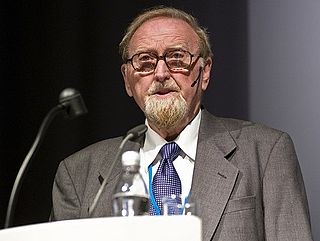A Quote by Clive Granger
I wonder if economics has less basic core material than is necessary for fields such as mathematics, physics, or chemistry, say.
Related Quotes
It seems that every practitioner of physics has had to wonder at some point why mathematics and physics have come to be so closely entwined. Opinions vary on the answer. ..Bertrand Russell acknowledged..'Physics is mathematical not because we know so much about the physical world, but because we know so little.' ..Mathematics may be indispensable to physics, but it obviously does not constitute physics.
It is almost as hard to define mathematics as it is to define economics, and one is tempted to fall back on the famous old definition attributed to Jacob Viner, "Economics is what economists do," and say that mathematics is what mathematicians do. A large part of mathematics deals with the formal relations of quantities or numbers.
Statistics is, or should be, about scientific investigation and how to do it better, but many statisticians believe it is a branch of mathematics. Now I agree that the physicist, the chemist, the engineer, and the statistician can never know too much mathematics, but their objectives should be better physics, better chemistry, better engineering, and in the case of statistics, better scientific investigation. Whether in any given study this implies more or less mathematics is incidental.
The information contained in an English sentence or computer software does not derive from the chemistry of the ink or the physics of magnetism, but from a source extrinsic to physics and chemistry altogether. Indeed, in both cases, the message transcends the properties of the medium. The information in DNA also transcends the properties of its material medium.
Did chemistry theorems exist? No: therefore you had to go further, not be satisfied with the quia, go back to the origins, to mathematics and physics. The origins of chemistry were ignoble, or at least equivocal: the dens of the alchemists, their abominable hodgepodge of ideas and language, their confessed interest in gold, their Levantine swindles typical of charlatans and magicians; instead, at the origin of physics lay the strenuous clarity of the West-Archimedes and Euclid.
Eugene Wigner wrote a famous essay on the unreasonable effectiveness of mathematics in natural sciences. He meant physics, of course. There is only one thing which is more unreasonable than the unreasonable effectiveness of mathematics in physics, and this is the unreasonable ineffectiveness of mathematics in biology.
Economics is haunted by more fallacies than any other study known to man. This is no accident. The inherent difficulties of the subject would be great enough in any case, but they are multiplied a thousandfold by a factor that is insignificant in, say, physics, mathematics or medicine - the special pleading of selfish interests.





































